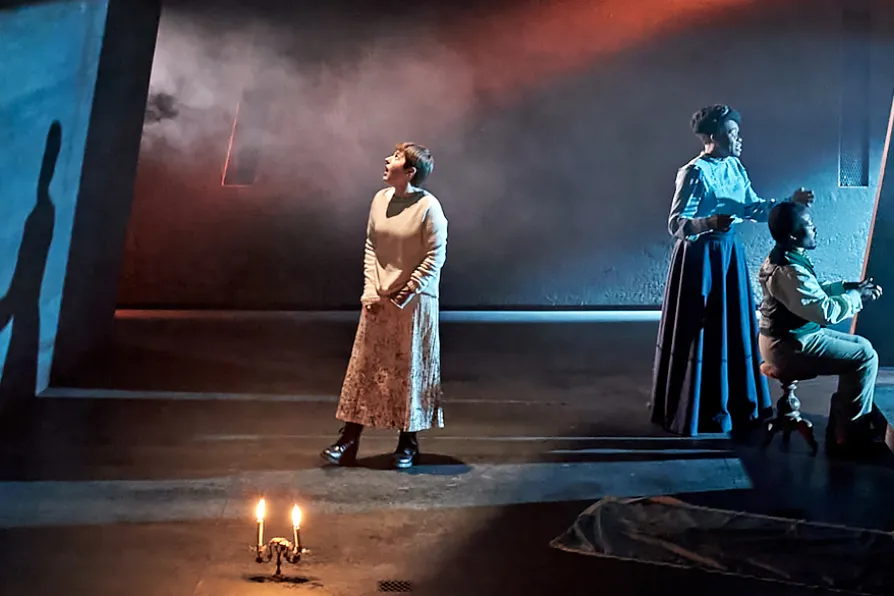STEPHANIE DENNISON and ALFREDO LUIZ DE OLIVEIRA SUPPIA explain the political context of The Secret Agent, a gripping thriller that reminds us why academic freedom needs protecting

 A fantastical idea pushed way too far: (L to R) Ria Zmitrowicz, Rakie Ayola, Fisayo Akinade
[Manuel Harlan]
A fantastical idea pushed way too far: (L to R) Ria Zmitrowicz, Rakie Ayola, Fisayo Akinade
[Manuel Harlan]
The Glow
The Royal Court
BASED on a premise originating in a little known book by Jessica Waites entitled The Woman in Time, the play attempts to personify an immortal female spirit erratically observed on our shores throughout history.
Usually bathed in a glowing light, her questionable presence in paintings, poems and written accounts was originally explained as a symbol or gauge of the time.
Alistair McDowall has turned this allegorical figure into a flesh and blood, supernatural agent unable to control her full powers. If this sounds a bit like another figure from one of the superhero franchises, you are not far off the mark.

GORDON PARSONS is blown away by a superb production of Rostand’s comedy of verbal panache and swordmanship

Reading Picasso’s Guernica like a comic strip offers a new way to understand the story it is telling, posits HARRIET EARLE











